E. Foley - Homework for Grown-ups: Everything You Learnt at School...and Promptly Forgot
Here you can read online E. Foley - Homework for Grown-ups: Everything You Learnt at School...and Promptly Forgot full text of the book (entire story) in english for free. Download pdf and epub, get meaning, cover and reviews about this ebook. year: 2009, publisher: Crown, genre: Children. Description of the work, (preface) as well as reviews are available. Best literature library LitArk.com created for fans of good reading and offers a wide selection of genres:
Romance novel
Science fiction
Adventure
Detective
Science
History
Home and family
Prose
Art
Politics
Computer
Non-fiction
Religion
Business
Children
Humor
Choose a favorite category and find really read worthwhile books. Enjoy immersion in the world of imagination, feel the emotions of the characters or learn something new for yourself, make an fascinating discovery.
Homework for Grown-ups: Everything You Learnt at School...and Promptly Forgot: summary, description and annotation
We offer to read an annotation, description, summary or preface (depends on what the author of the book "Homework for Grown-ups: Everything You Learnt at School...and Promptly Forgot" wrote himself). If you haven't found the necessary information about the book — write in the comments, we will try to find it.
Have you ever stared blankly at your kids when theyve asked why the sky is blue? Or clumsily changed the subject when theyve wanted to know why the wind blows? If youre done with school, its likely youre also done knowing the difference between an isosceles and equilateral triangle, and you probably leave participles dangling all over the place. Well, not anymore! Thanks to professional know-it-alls Foley and Coates, you can now gain back your self-respect and actually show those kids a thing or two as you tell it to them straight (and not make it up from fragments of facts you kind of remember).
Packed with all the basic facts that have managed to free-fall from our heads over the years, Homework for Grown-ups is the ultimate grammar school refresher course in book form. In fact, theres even a quiz at the end of each chapter to ensure youve been paying attention! Written in the light, engaging style of a favorite teacher and featuring lessons in English, math, history, science, geography, art, and even home economics and recess, this fun and handy guide will help you stop hemming and hawing and start speaking with a lot more authorityand a little less shame.
E. FOLEY and B. COATES are editors at Vintage who both live in London.
E. Foley: author's other books
Who wrote Homework for Grown-ups: Everything You Learnt at School...and Promptly Forgot? Find out the surname, the name of the author of the book and a list of all author's works by series.

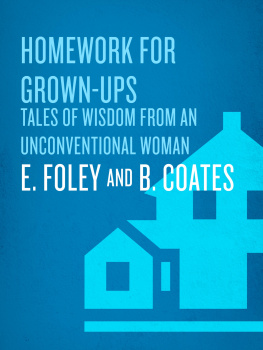
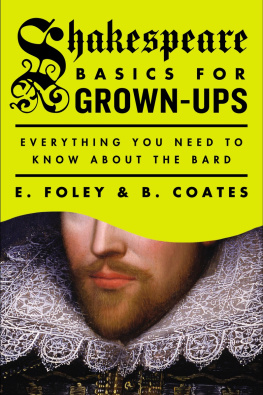
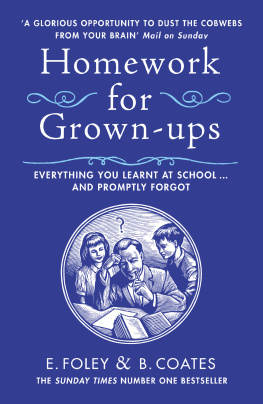

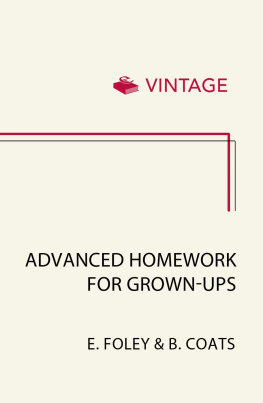



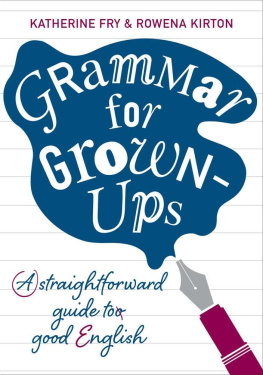

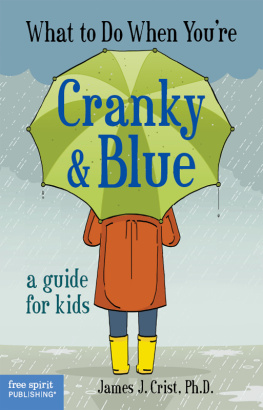
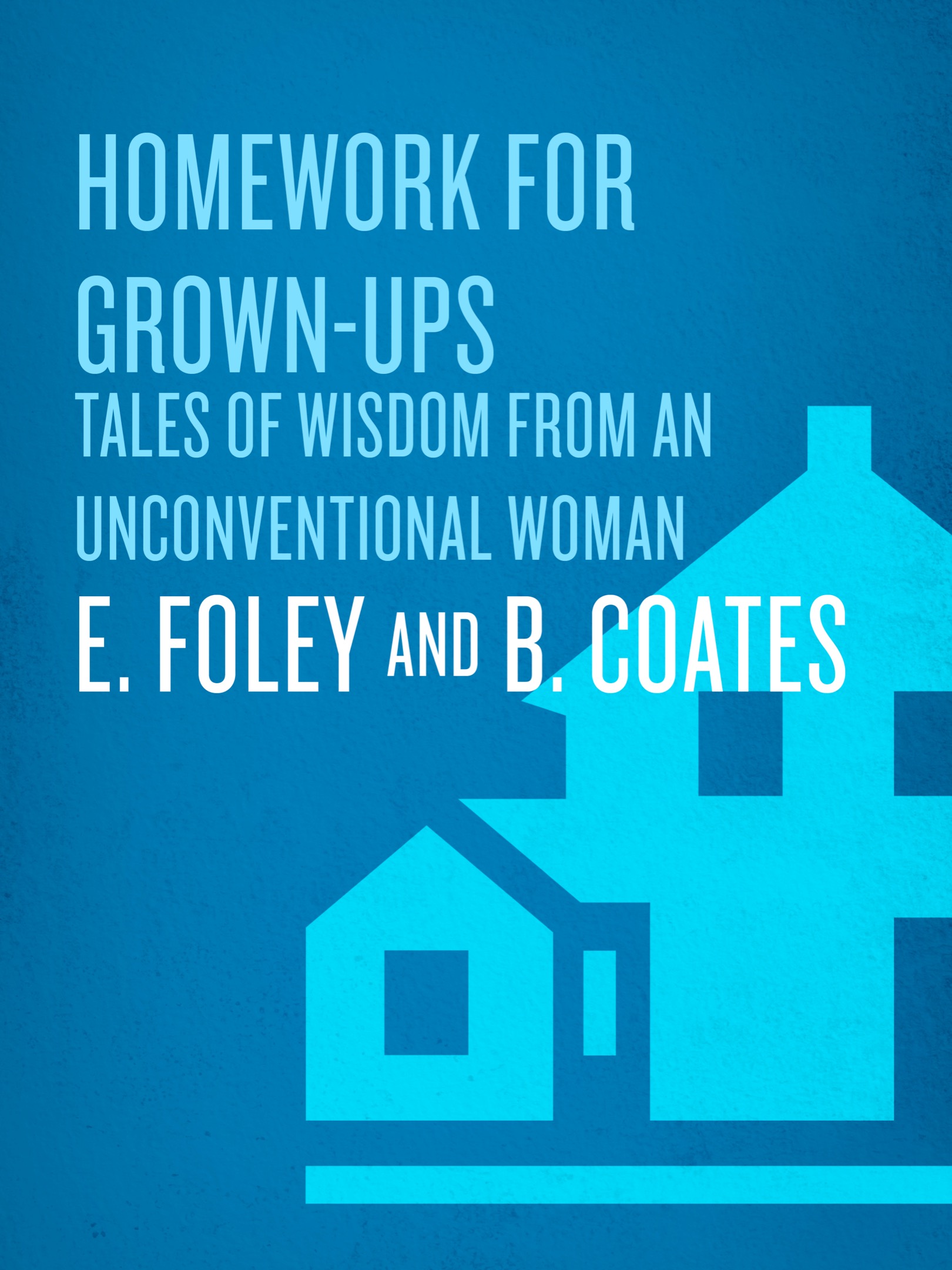
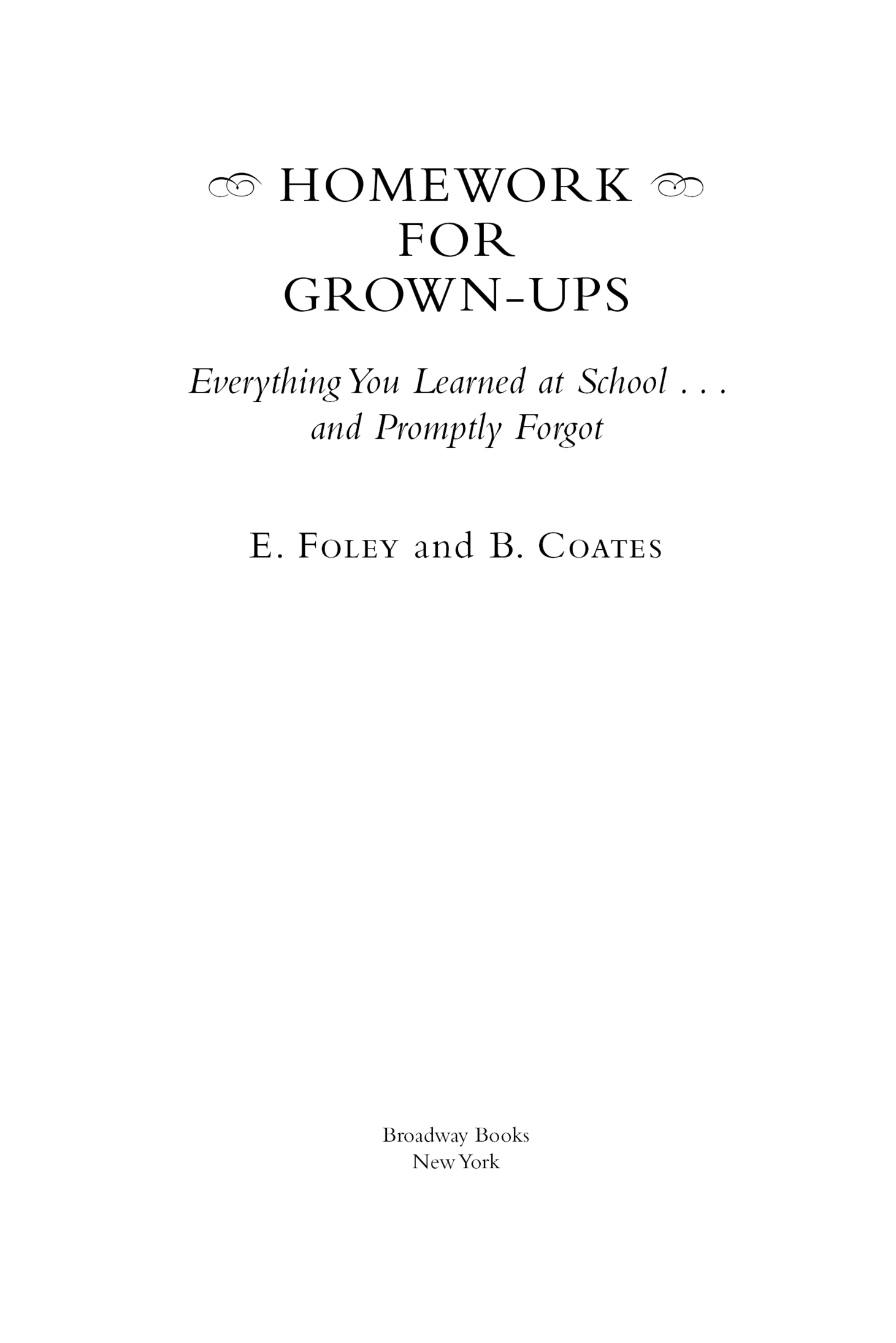

 CONTENTS
CONTENTS 